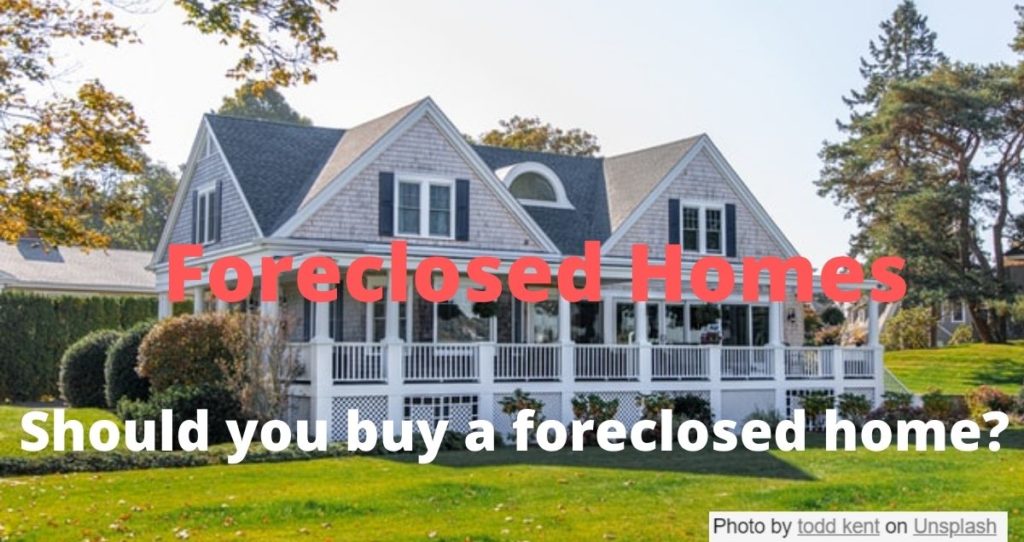What is a foreclosed home?
A foreclosed home is one that was repossessed by the lender because the owner defaulted on the mortgage payments. The foreclosure process helps moneylenders to legally take the house from the homeowner. Once this process is done, the home can either be sold in an auction or through regular listing systems.
The following are steps taken when the owner of the house fails to make their mortgage payments.
- Pre-foreclosure: During this stage, the moneylender notifies the owner of the home that they have fallen behind on their mortgage payments. Once the letter is received, the homeowner must take action as soon as possible. Paying off the loan would be an option that can save money and time for both parties. However, there are other options the owner of the house can use to avoid a foreclosure. The first option is to sell the house as a short sale. A short sale means that you sell the house with permission from your lender and pay the lender after the house is sold. The second option is to refinance the house. Refinancing a house will let you have a brand new mortgage on the house and pay the original lender.
- Auction: If the owner fails to refinance the house, pay the mortgage, or short sale the house; the lender will take the property and sell it through auction. A court may be involved to legally take the house from the homeowner. Once on auction, the house will be sold to the highest bidder and it will be sold as-is. If the house is not sold during the auction, the lender will keep the house and add it to his portfolio and the property will become a real estate owned property.
- Real estate owned (REO): The house will be sold as REO after failing to be sold during the auction. At this stage, the lender can use a real estate agent or sell it directly to its customers.
Pros of buying foreclosed houses
- The seller could be open to negotiations in order to complete the sale faster
- The seller could cover closing costs
- Homebuyers can finance foreclosed properties using regular mortgages
- The property could be cheaper than similar properties in the same area
- There will be less competition since many regular homebuyers do not look into foreclosures
Cons of buying foreclosed homes
- It can take longer to finalize the sale
- The house could have a lot of hidden repairs that can turn into a financial disaster
- You will compete with experienced homebuyer and investors
Is it a good idea to buy a foreclosed home?
Foreclosed properties can be a great investment to experienced buyers. These properties will come with their own challenges compared to regular homes. Foreclosed homes usually have renovations of some kind which can range from small projects to major repairs depending on how the house was taken care of.
Homeowners who fail to pay off their mortgages do not manage their houses properly. This leads to all kinds of problems such as structural problems, leaky roofs, damaged walls, etc. In some cases, some homeowners abandon their houses before the foreclosure.
As a buyer, you must understand that a property you are buying will have some of these problems. For this reason, you need to put aside enough money that will be used to renovate the house before you move in. In addition, foreclosed homes tend to take longer because you are dealing with a financial institution that has its own rules. If you are in hurry with no renovation money, buying a foreclosed home may not be a good option for you.
On the other hand, if you have enough time, experience, and money for renovation, a foreclosure can be a great investment. Sometimes lenders sell their property below the market value in order to reduce their portfolio size. For this reason, patient homebuyers find great deals through foreclosed properties.









